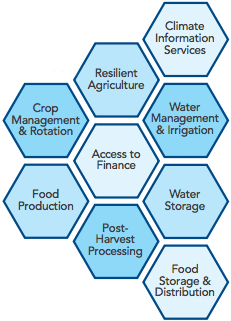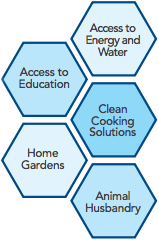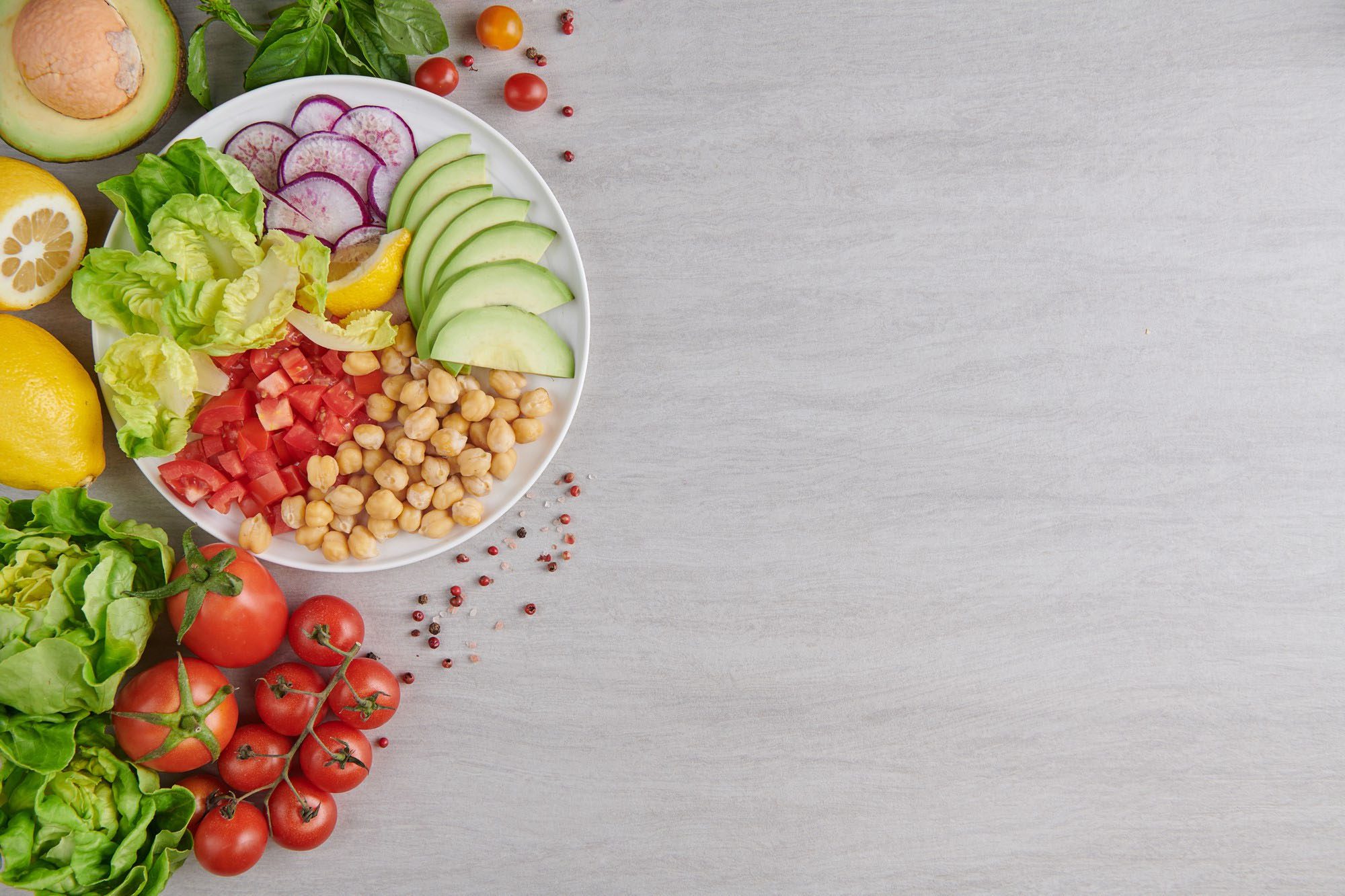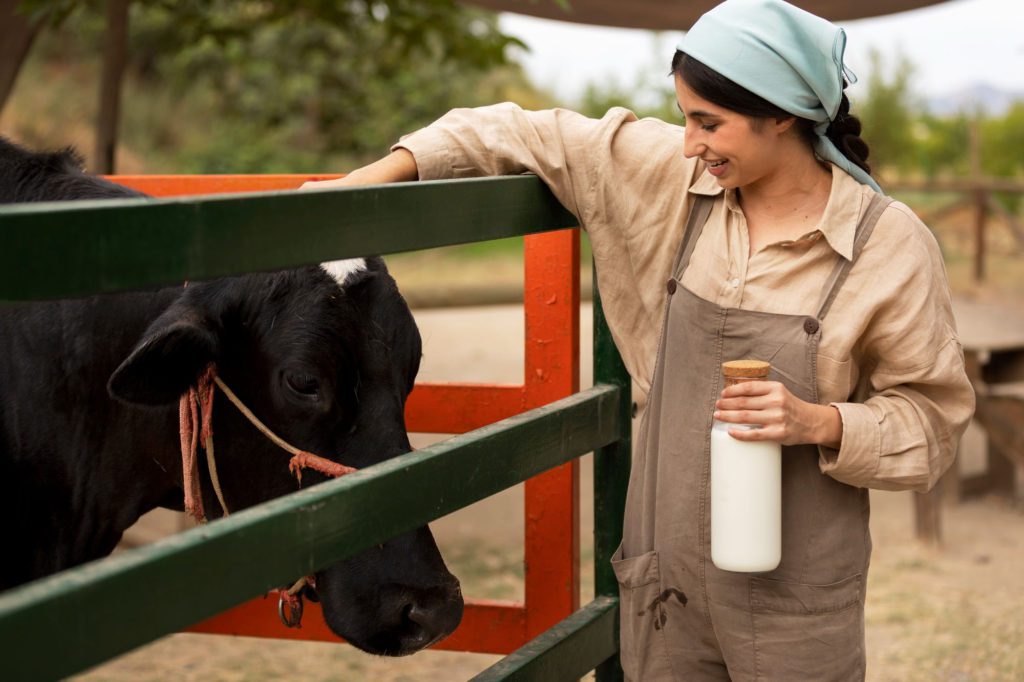Ending hunger and poverty
in a sustainable way
Food security means having, at all times, both physical and economic access to sufficient food to meet dietary needs for a productive and healthy life. A family is food secure when its members do not live in hunger or fear of hunger. Food insecurity is often rooted in poverty and has long-term impacts on the ability of families, communities, and countries to develop and prosper. Prolonged undernourishment stunts growth slows cognitive development and increases susceptibility to illness.
Today, more than 800 million people across the globe go to bed hungry every night, most of them smallholder farmers who depend on agriculture to make a living and feed their families. Despite an explosion in the growth of urban slums over the last decade, nearly 75 percent of poor people in developing countries live in rural areas. Growth in the agriculture sector — from farm to fork — has been shown to be at least twice as effective in reducing poverty as growth in other sectors.
Investing in these smallholder farmers—many of whom are women—and the food systems that nourish them is more important than ever. Given scarcity of natural resources and other challenges, the world will need to be more efficient in how it meets this demand. To ensure that people have sufficient food, aligning short-term assistance with a long-term development strategy can help countries feed their own people by addressing acute need as well as the root causes of hunger, poverty and malnutrition.
COMPLEX PROBLEM: GPI addresses this complex problem at multiple levels with an integrated set of services and tools that improve the management of water, natural resources, and agricultural production and delivery.
INTEGRATED SOLUTION: GPI addresses this complex problem at multiple levels with an integrated set of services and tools that improve the management of water, natural resources, and agricultural production and delivery.
 Improving governance, planning and priority setting
Improving governance, planning and priority setting
Food and water security depend on factors ranging from adequate production and affordability to reliable storage and processing facilities. Targeted investments and interventions are necessary to ensure robust food production, equitable management of shared resources and reduced weather-related risks. Good Planet International will designs tools that collect, analyze and disseminate data, informing smart decisions about everything from land and water use to the financing of storage and distribution infrastructure.
Equitable and sustainable resource allocation and land use require a strong legal and policy framework. GPI works with policymakers to identify what data is needed to develop policies and rules to manage competing demands for water and land use. We then partner with local research institutions to gather, analyze and share information that informs smart policymaking.

 Making agricultural production more resilient
Making agricultural production more resilient
GPI’s work is concentrated at the farm and community levels.
Our programs:
Build local capacity to transparently and equitably manage community assets and resources to support diversified agricultural production systems, pinpoint and develop new sources of income, and promote women’s empowerment.

 Strengthening households
Strengthening households
At the household level, the burden for collecting fuel and water falls disproportionately on women. GPI provides energy-efficient, low-cost technology solutions – including clean cook stoves and solar water pumps – that help women provide for their households. With better information and more time, women can better address food insecurity by growing household gardens and running small livestock husbandry operations. Diversified sources of nutrition and income are key to improving food security.


As the global population has boomed, demand for food has put immense pressure on the land.
At Good Planet International, we know the importance of animal-sourced foods for ending hunger and poverty. In areas of high malnutrition, they are the fastest way of getting vital nutrients to people who need them most.
We also know that healthy diets are balanced diets. Together with livestock, crops provide an important source of nutrition and income for farming families.
Working with farmers, we improve productivity and identify opportunities to add value to what they’re already producing or expand into new product areas to meet market demand.
We believe connections are critical in what we do – people connect to each other and to market systems – these are vital for improving our sustained growth model.
While subsistence provides goods and nutrition for the time being, an active marketplace creates incomes, savings, education, employment and opportunities for communities to retain their people, develop new skills and increase earning potential.
With a living income, people can be even more productive actors in growing their own local economy.


If any of our projects, articles, or capabilities interest you, please don’t hesitate to get in touch with a member of our team.

Around the globe, we work to find life-changing solutions that transform lives and make the planet a better place for mankind.
Good Planet International Foundation is a registered charity in the UK.
Charity no: 1199457

Around the globe, we work to find life-changing solutions that transform lives and make the planet a better place for mankind.
Good Planet International Foundation is a registered charity in the UK.
Charity no: 1199457